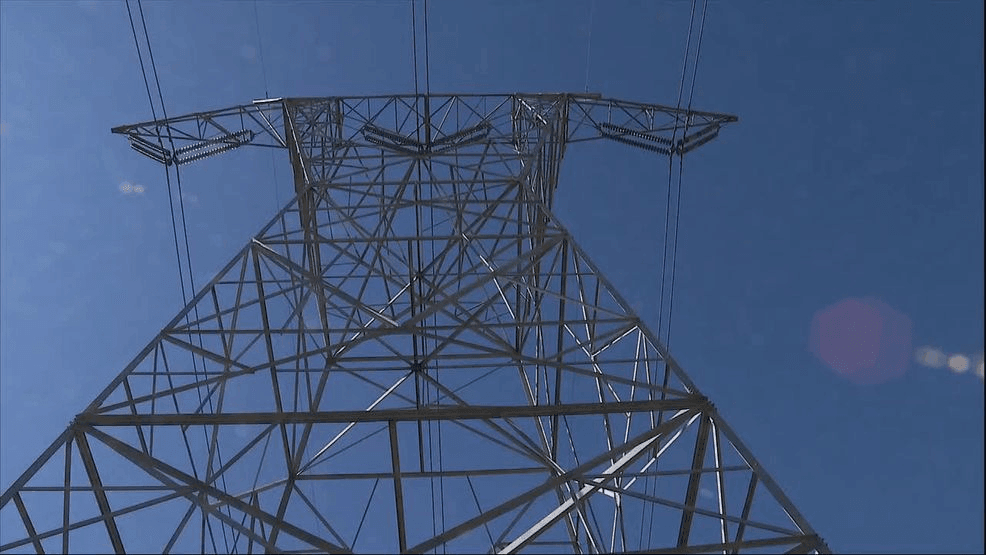BALTIMORE (WBFF) — As state leaders continue to respond to Maryland’s energy crisis, Governor Wes Moore and Pennsylvania’s Governor Josh Shapiro, are pointing the finger at PJM, calling for change.
PJM, is the regional grid operator, which manages the flow of energy between 13 states and Washington D.C.
During a press conference Monday, as Governor Moore was announcing an energy rebate, he also said inefficient and outdated processes within PJM are leading to bill increases. He said currently, elected state leaders have little say in decisions made by PJM, which impact ratepayers.
“In this moment we demand a seat at the table with PJM,” Governor Moore said. ” Because no longer can they make decisions about us when we are not at the table in the first place.”
ALSO READ | Maryland PSC establishes procedural schedule for MPRP transmission line review
But Governor Josh Shapiro in Pennsylvania, came out with an even stronger message to PJM.
“Listen, Pennsylvania is the second largest net energy producer in the entire country and by far the largest generator of energy in the entire PJM network,” Shapiro said. “If PJM refuses to change, we will be forced to go in a different direction and that will have a significant impact here in this region and across the country.”
“I think governors and our representatives need to have a seat at the table, be represented on the board in a reformed leadership structure,” Shapiro said. “I think we need to move the que along a whole lot more quickly and I think we need concrete policies to fix the speed at PJM. And I think we need to be thinking about consumers and their costs, something PJM, I think, doesn’t really spend a whole lot of time focused on.”
“These reforms are going to be necessary for Pennsylvania to remain part of PJM,” he added.
When asked how much time Shapiro would give PJM to make the changes, he said “months, not years.”
In a statement, a spokesperson from PJM said, “We thank our governors for holding a thoughtful discussion on the challenges shaping our shared energy future. Meeting the demands of a rapidly changing energy landscape will require solutions that extend beyond any one institution. It will require PJM, the industry and especially our states all working in concert. PJM will continue to fulfill its mandate of maintaining reliability in as cost-effective a manner as possible for the 67 million people we serve.”
While it’s not clear what steps PJM will take, if Pennsylvania does leave the PJM grid, it could cause a problem for Maryland. Currently, Maryland imports about 40 percent of its energy from other states, including Pennsylvania. If Pennsylvania leaves, it could put a further strain on Maryland’s grid, especially as lawmakers continue to scramble to find long-term energy solutions.
ALSO READ | SUN: Maryland electricity rates to rise in September, advocates call for intervention
While Governor Moore and Shapiro argue PJM is a large reason for the increased energy costs, Republicans disagree.
“You see the governor blaming PJM for all of the woes in Maryland,” said Maryland Senator Stephen Hershey, responding to Governor Wes Moore. “That is exactly not the case. PJM is a grid operator. They’re not responsible for generation. The reason PJM is having such difficulty is because of states like Maryland and New Jersey and all of these blue states have decided that they are against energy generation unless it comes in form of wind and solar.”
In response to Shapiro’s remarks, Pennsylvania Republican Sen. Gene Yaw said, “The governor incorrectly blamed PJM for higher electricity prices largely caused by progressive energy policies in states across PJM’s footprint. PJM does not own generation facilities or distribution lines. It simply manages the flow of electricity across the grid.”
“Instead of pointing fingers, the governor should join Senate Republicans in our efforts to strengthen reliability and encourage affordable baseload generation. Pennsylvania helped build PJM into one of the most reliable power markets in the nation, and we should work with PJM and regulators to keep it that way,” Yaw added.
